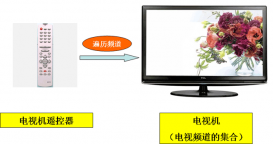本文实例总结了Zend Framework数据库操作。分享给大家供大家参考,具体如下:
Zend_Db数据库知识
例子:
Model文件:
|
1
2
|
$this->fetchAll("is_jian=1","id DESC",0,2)->toArray();//根据is_jian=1,按id倒序排列取前2条记录当第一个参数为null时,则直接按id倒序排列ASC为正序。 |
路由文件:
|
1
2
|
$video=new Video();//实例化数据库类$this->view->get2Video =$video->get2Video();//取到2条首页推荐的数据 |
index.phtml文件:
|
1
2
3
4
|
<?php foreach ($this->get2Video as $video): ?><?=$video['id']; ?><?=$video['name']; ?><? endforeach; ?> |
添加引号防止数据库攻击
quote用法
|
1
2
3
4
5
|
$value = $db->quote('St John"s Wort');// $value 现在变成了 '"St John\"s Wort"' (注意两边的引号)// 为数组加引号$value = $db->quote(array('a', 'b', 'c'));// $value 现在变成了 '"a", "b", "c"' (","分隔的字符串) |
quoteInto用法
|
1
2
3
4
5
|
echo $where = $db->quoteInto('id = ?', 1);// $where 现在为 'id = "1"' (注意两边的引号)// 在where语句中为数组加上引号$where = $db->quoteInto('id IN(?)', array(1, 2, 3));// $where 现在为 'id IN("1", "2", "3")' (一个逗号分隔的字符串) |
(1)数据查询总结
直接进行查询. ( 使用完整的sql语句)
|
1
2
3
4
5
6
|
//function quoteInto($text, $value, $type = null, $count = null)$db = $this->getAdapter();$sql = $db->quoteInto('SELECT * FROM `m_video` WHERE `is_guo` =?', '1');$result = $db->query($sql);// 使用PDOStatement对象$result将所有结果数据放到一个数组中$videoArray = $result->fetchAll(); |
fetchAll用法
fetchAll($where = null, $order = null, $count = null, $offset = null)
取回结果集中所有字段的值,作为连续数组返回,如果参数不设置就写成null
可以取回结果集的指定条数
|
1
|
$videoArray=$this->fetchAll("is_jian=1 and is_guo=1","id DESC",0,2)->toArray(); |
fetchAssoc用法
fetchAssoc($sql, $bind = array())
取回结果集中所有字段的值,作为关联数组返回, 第一个字段作为码
|
1
2
|
$db = $this->getAdapter();$videoArray=$db->fetchAssoc("SELECT * FROM m_video WHERE `is_jian` = :title",array('title' => '1')); |
fetchCol用法
fetchCol($sql, $bind = array())
取回所有结果行的第一个字段名
|
1
2
|
$db = $this->getAdapter();$videoArray=$db->fetchCol("SELECT name FROM m_video WHERE `is_jian` = :title",array('title' => '1')); |
fetchOne用法
fetchOne($sql, $bind = array())
只取回第一个字段值
|
1
2
|
$db = $this->getAdapter();echo $videoArray=$db->fetchOne("SELECT count(*) FROM m_video WHERE `is_jian` = :title",array('title' => '1')); |
fetchPairs用法
fetchPairs($sql, $bind = array())
取回一个相关数组,第一个字段值为码(id),第二个字段为值(name)
返回:Array( [1] => 十二生肖奇缘 [2] => 桃花运),1,2:为id字段。
|
1
2
|
$db = $this->getAdapter();$videoArray=$db->fetchPairs("SELECT id, name FROM m_video WHERE is_jian = :title",array('title' => '1')); |
fetchRow用法
fetchRow($where = null, $order = null)
只取回结果集的第一行
|
1
|
$videoArray=$this->fetchRow("is_jian=1 and is_guo=1", 'id DESC')->toArray(); |
query用法
|
1
2
3
4
5
6
7
8
9
10
11
12
13
|
//function query($sql, $bind = array())$db = $this->getAdapter();$result = $db->query('SELECT * FROM `m_video`');//$result = $db->query('SELECT * FROM `m_video` WHERE `name` = ? AND id = ?',array('十二生肖奇缘', '1'));//$result->setFetchMode(Zend_Db::FETCH_OBJ);//FETCH_OBJ为默认值,FETCH_NUM,FETCH_BOTH//while ($row = $result->fetch()) {// echo $row['name'];//}//$rows = $result->fetch();//$rows = $result->fetchAll();//$obj = $result->fetchObject();//echo $obj->name;// echo $Column = $result->fetchColumn(0);//得到结果集的第一个字段,比如0为id号,用于只取一个字段的情况print_r($rows); |
select用法
|
1
2
3
4
5
6
7
8
9
10
11
12
13
14
15
16
|
$db = $this->getAdapter();$select = $db->select();$select->from('m_video', array('id','name','clicks'))->where('is_guo = :is_guo and name = :name')->order('name')// 按什么排序列,参加为数组(多个字段)或字符串(一个字段)->group()//分组->having()//分组查询数据的条件->distinct()// 无参数,去掉重复的值。有时候与groupby返回的结果一样->limit(10);// 读取结果使用绑定的参数$params = array('is_guo' => '1','name'=>'十二生肖奇缘');//$sql = $select->__toString();//得到查询语句,可供调试$result = $db->fetchAll($select,$params);执行select的查询$stmt = $db->query($select);$result = $stmt->fetchAll(); |
或用
|
1
2
|
$stmt = $select->query();$result = $stmt->fetchAll(); |
如果直接用
|
1
|
$db->fetchAll($select) |
结果一样
多表联合查询用法
|
1
2
3
4
5
6
7
8
9
|
$db = $this->getAdapter();$select = $db->select();$select->from('m_video', array('id','name','pic','actor','type_id','up_time'))->where('is_guo = :is_guo and is_jian = :is_jian')->order('up_time')->limit(2);$params = array('is_guo' => '1','is_jian'=>'1');$select->join('m_type', 'm_video.type_id = m_type.t_id', 'type_name');//多表联合查询$videoArray = $db->fetchAll($select,$params); |
find()方法,可以使用主键值在表中检索数据.
|
1
2
3
4
|
// SELECT * FROM round_table WHERE id = "1"$row = $table->find(1);// SELECT * FROM round_table WHERE id IN("1", "2", 3")$rowset = $table->find(array(1, 2, 3)); |
(2)数据删除总结
第一种方法:可以删任意表
|
1
2
3
4
5
|
//quoteInto($text, $value, $type = null, $count = null)$table = 'm_video';// 设定需要删除数据的表$db = $this->getAdapter();$where = $db->quoteInto('name = ?', 'ccc');// 删除数据的where条件语句echo $rows_affected = $db->delete($table, $where);// 删除数据并得到影响的行数 |
第二种方法:只能删除本表中的
|
1
2
3
4
|
//delete用法// delete($where)$where = "name = 'bbb'";echo $this->delete($where);// 删除数据并得到影响的行数 |
(3)数据更新总结
第一种方法:可以更新任意表
|
1
2
3
4
5
6
7
8
9
10
|
// 以"列名"=>"数据"的格式构造更新数组,更新数据行$table = 'm_video';// 更新的数据表$db = $this->getAdapter();$set = array ('name' => '蝶影重重','clicks' => '888',);$where = $db->quoteInto('id = ?', '10');// where语句// 更新表数据,返回更新的行数echo $rows_affected = $db->update($table, $set, $where); |
第二种方法:只能更新本表中的
|
1
2
3
4
5
6
7
|
$set = array ('name' => '蝶影重重22','clicks' => '8880',);$db = $this->getAdapter();$where = $db->quoteInto('id = ?', '10');// where语句$rows_affected = $this->update($set, $where);// 更新表数据,返回更新的行数 |
(4)数据插入总结
第一种方法:可以在任意表中插入数据
|
1
2
3
4
5
6
7
8
9
10
11
12
13
14
15
16
|
$table = 'm_gao';// 插入数据的数据表$db = $this->getAdapter();// 以"列名"=>"数据"的格式格式构造插入数组,插入数据行$row = array ('title' => '大家好。111','content' => '影视网要改成用zend framework开发啊','time' => '2009-05-04 17:23:36',);// 插入数据行并返回插入的行数$rows_affected = $db->insert($table, $row);// 最后插入的数据idecho $last_insert_id = $db->lastInsertId();$row=array('name'=>'curdate()','address' => new Zend_Db_Expr ('curdate()')) |
这样子字段name会插入一个curdate()的字符串,而address插入一个时间值(curdate()的结果2009-05-09)
第二种方法:只能适合本表中的还没有总结出来
(5)事务处理
|
1
2
3
4
5
6
7
8
9
10
11
12
13
14
15
16
17
18
19
20
21
|
$table = 'm_gao';// 插入数据的数据表$db = $this->getAdapter();$db->beginTransaction();//Zend_Db_Adapter会回到自动commit模式下,直到你再次调用 beginTransaction()方法// 以"列名"=>"数据"的格式格式构造插入数组,插入数据行$row = array ('id'=>null,'title' => '大家好。111','content' => '影视网要改成用zend framework开发啊','time' => '2009-05-04 17:23:36',);try {// 插入数据行并返回插入的行数$rows_affected = $db->insert($table, $row);// 最后插入的数据id$last_insert_id = $db->lastInsertId();$db->commit();// 事务提交}catch (Exception $e){$db->rollBack();echo '捕获异常:'.$e->getMessage();//打出异常信息}echo $last_insert_id; |
(6)其他
|
1
2
3
|
$db = $this->getAdapter();$tables = $db->listTables(); //列出当前数据库中的所有表$fields = $db->describeTable('m_video');//列出一个表的字段情况 |
希望本文所述对大家基于Zend Framework框架的PHP程序设计有所帮助。















